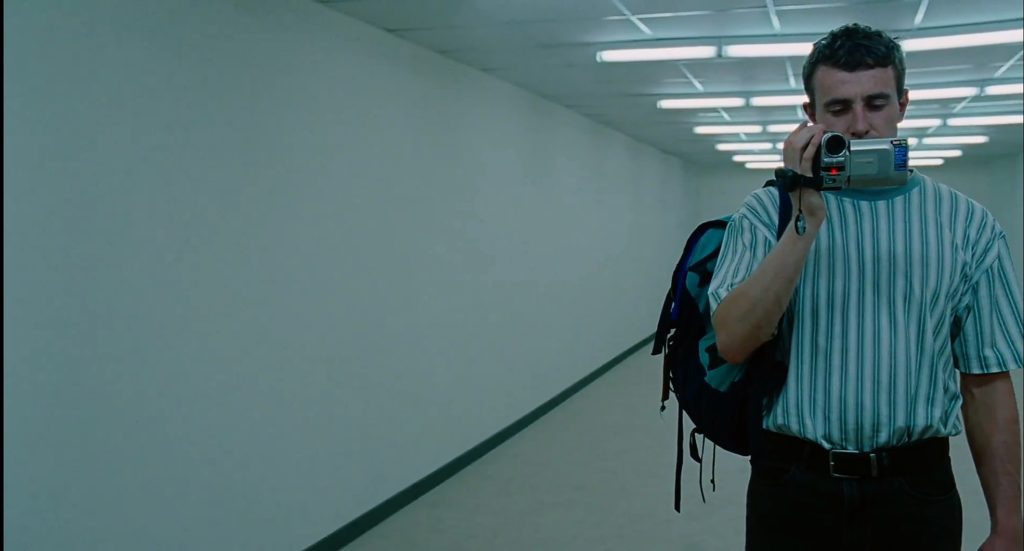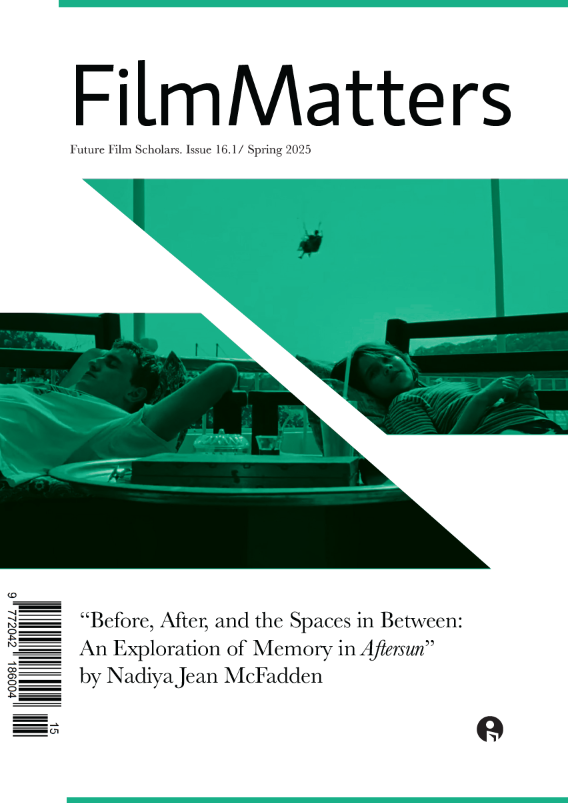
Film Matters: Please tell us about your article that is being published in Film Matters. What research and/or methodologies do you incorporate in your article?
Nadiya Jean McFadden: My article is titled: “Before, After, and the Spaces in Between: An Exploration of Memory in Aftersun.” To research a relatively recent film like Aftersun (2022), I tried to find scholarly articles that mentioned the film. However, I also scoured through as many reviews as possible, watched the film five times, including the director’s commentary version, and read interviews with the director, Charlotte Wells.
FM: Describe the original context for/when writing this article while an undergraduate student.
NJM: I originally wrote a shorter version of this article for my Film Criticism class, and I selected Aftersun specifically for my subject due to my peers’ criticism: it was a boring film, and nothing happened. I enjoy the subtlety Aftersun uses to depict coming-of-age; it is a refreshing take on the genre.
FM: What does your writing process look like?
NJM: My writing process includes hours of rewatching, brainstorming, and exhaustive bullet-pointed lists of all the points I want to cover that culminate in a rough draft that must be combed through for grammar mistakes, particularly lengthy run-on sentences.
FM: How have your personal experiences shaped and influenced your writing?
NJM: My lifelong joy of reading easily translated into a love for film and a passion for writing. As someone who can be perfectly content watching four films in a day or reading a novel for twelve hours straight, I had to find a way to share my thoughts and feelings on the media I was consuming. Writing is the perfect outlet for me because I can write something just for myself without being concerned with finding someone who has seen or read the same thing to discuss it with.
FM: What are your methods for finding diverse and relevant sources?
NJM: As a woman of color, I always search for diverse sources to see the opinions of others and those similar to me.
FM: Why is including marginalized voices in research important to you?
NJM: Marginalized voices in research deserve recognition so that they know that their perspectives and hard work in their field are essential and needed.
FM: What aspects of the writing process were most challenging? Why?
NJM: Once I start writing, it is more about choosing a point when to stop; but returning to a piece I wrote semesters ago and having to get back into the mindset of when I originally began it to achieve its intended points was difficult.
FM: What’s a resistance point you hit in your writing, and how did you move past it?
NJM: Reaching the word count posed a significant challenge, as this was the lengthiest article I have ever written in my undergraduate studies.
FM: What do you enjoy most about your article?
NJM: I highlighted the best aspects of Aftersun and hope that more people will take the time to watch the film to see it for themselves.
FM: How has the Film Matters editorial and publication process impacted the development/evolution of your article?
NJM: Knowing that many others will be reading my article encouraged me to be even more meticulous with my editing than usual. I pushed myself to make my writing clear, eloquent, and enticing.
FM: What audience do you hope to reach with your Film Matters article and/or what impact do you hope it has on the field of film studies?
NJM: I hope my article reaches all aspiring women writers, directors, cinematographers, and all other positions within film. Aftersun was Charlotte Wells’s first feature film, and she created a masterpiece that will have a lasting impact. I hope to one day achieve the same.
FM: What advice do you have for undergraduate film and media scholars?
NJM: It is so important to write about the films that you love, and it does not matter if they are popular or well-received by everyone. If you find a film that moves you, write an article about it and create something to represent the emotions it brought out in you.
FM: What are your future plans?
NJM: After graduation, I will move to New York City to start my career in the film and television industry.
Author Biography
Nadiya Jean McFadden graduated Magna Cum Laude from Florida Atlantic University after obtaining a Bachelor of Art in Multimedia Studies with a concentration in Film, Video, and New Media. She currently works and resides in South Florida while enjoying as much film, literature, and music as possible.







































